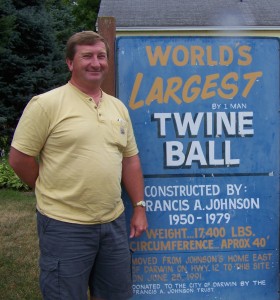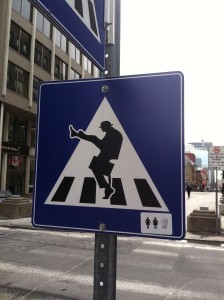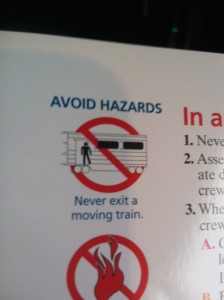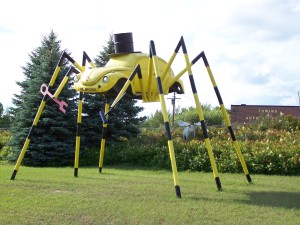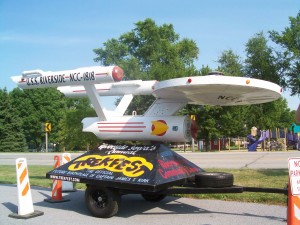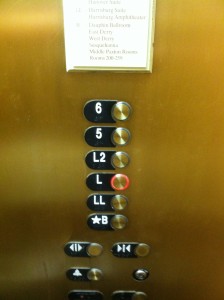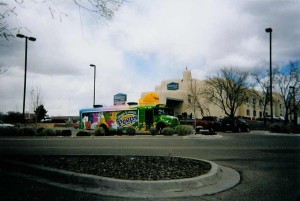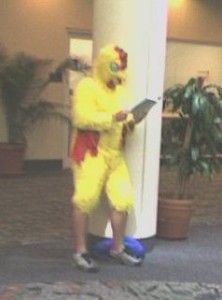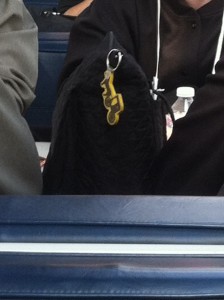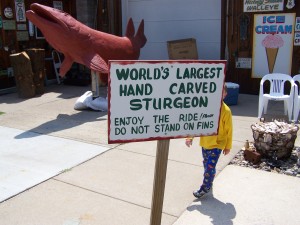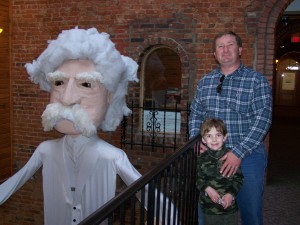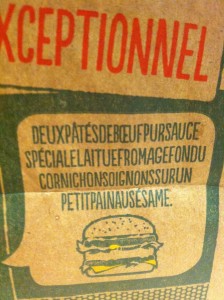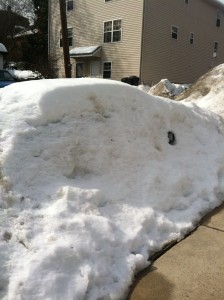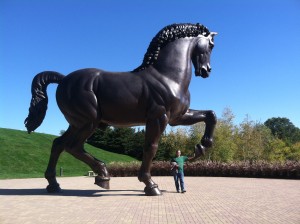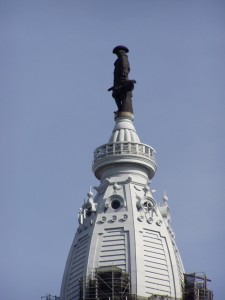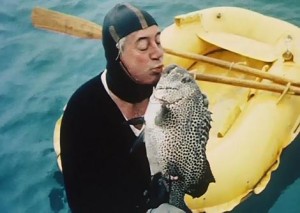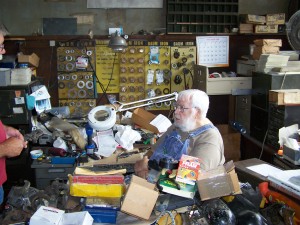
I found a dead body on December 3, _______. Even as I write this I sense how harsh and callous these words feel to the ear. What I found was a man, a man who had committed suicide. I didn’t know, until sometime later, what man this was and so, at least for a while, I said in my own interior monolog and to others, “I found a dead body.”
I want to be very clear about what this story is. While the “dead body” was a man who deserves consideration and I have, since, grieved for him myself, this story is about me. It is about my experience finding a “dead body.” It is about how I felt about that and what I learned. It is also about how others reacted to my story and how I felt about their sympathy or callousness.
I would like to write a story about Michael _______, the man I found. But I cannot. I cannot know much about his life. Believe me, I have tried to find out. I can’t know how he felt or what made him happy, or what made him so sad that he ended his life. His story should be told. I am not the man who can do it.
I am a pilot. I fly all over the United States. I sleep in hotel rooms about 150 nights per year. When you are a pilot you develop routines. These are very important. A foolish consistency may be the hobgoblin of little minds, as Emerson has said, but a logical consistency will save you a great deal of trouble when your surroundings change every day. If you lay your hat on the desk with your tie coiled neatly in it and then you place your wallet and watch to its left and your cell phone to its right, you will tend to have an idea where these items are at 4:00 in the morning when your alarm (which is on the right hand nightstand next to your glass of water) drags you out of bed. These consistencies follow us into the cockpit. They are called checklists and you can be sure, after doing them 10,000 times, that your hand will naturally float to the switch you need to push just before it is required that you do so.
It is no surprise, then, to find me in a hotel room near the Oklahoma City airport with my USA Today in my hand, the remote in the other (to turn on the Weather Channel, of course), and a steaming cup of mediocre hotel room coffee on the left nightstand. I had to “show” at about 1:00 in the afternoon for a flight to Houston, TX, followed by a flight back to Oklahoma City and, once again, back to Houston.
The Weather Channel decreed that it would be a cold and windy day in Oklahoma City, which nearly goes without saying. I had recently acquired a new hobby called Geocaching. Geocaching is an organized “treasure hunt” using GPS technology. Unbeknownst to non-cachers (called muggles in the lexicon) there are small containers hidden all around the world which can be found by using a GPS and determining the coordinates on a website called Geocaching.com. These containers can be as small as a vitamin pill, or as large as a truck. They contain, at minimum, a logbook which you can sign and sometimes trade items. Trade items are trinkets or toys for kids or occasionally what we call a “travel bug.” The trinkets are to be traded; you take something, you leave something. The travel bugs are small coins or “dog-tags” which have a distinct number printed on them and so can be tracked and their movements logged on the Geocaching website.
On this windy morning in Oklahoma City, I had planned to take a walk along the biking trail adjacent to the Oklahoma River and find a geocache for which I had written down the coordinates. It would later strike me as ironic that I was essentially playing a game when I discovered the man whose life experience had brought him to this tragic end.
The cache was near a pedestrian bridge crossing a drainage canal along the trail. This spot was about half a mile from my hotel and maybe a hundred yards from another hotel which sat along the river.
Even prior to my experience on December 3, I had come to think of Oklahoma as a depressing place. One cannot truly be a traveler in the sense of knowing a place. What you get, even if you travel a lot, are snapshots and impressions. It is possible, if you are not careful, to form a powerful opinion about an entire state from your experience of a few city blocks, or a bad hotel. This is of course unfair. It is nonetheless true.
The Oklahoma I have known includes a rapid transit of the state from North to South on I-35 when I was a child of 12, several nights in a lackluster hotel undergoing renovation next to the Tulsa airport, and many, many overnight stays in this particular industrial park/strip mall just outside the Oklahoma City airport. Our Oklahoma City hotel is nice enough. The rooms are clean, the van service is prompt, and a good breakfast is provided in the morning. The terrain around the hotel is less inspiring. Scattered on either side of the main road coming out of the north side of the airport is an irregular assortment of hotels, restaurants, car washes, small businesses, and gas stations similar to what one might find anywhere in the country next to an airport. These complexes always somewhat depress me for reasons I cannot exactly explain.
This one, in particular brings on a gloomy feeling in me because of previous walks I have taken in the vicinity of this hotel. What one finds, if he walks even one block east or west of the main drag, is a flat scrubby plain of red dirt populated by sparse little trees, what I might call tumbleweeds, and lots of cast-off junk. The “river,” which runs at right angles to the main road, is a muddy little ditch, highly eroded by periodic rains, but nearly stagnant, the lack of current suggesting the lack of any rain at all. Along its banks have been deposited old piles of construction material and garbage. More than once, I have seen old couches or other furniture pitched down into the gullies. Close to the road bridge one is apt to find a vast collection of beer cans, snack food wrappers, soda bottles, and an unusual number of chewing tobacco tins with occasional accompanying containers of accumulated spit. This is not to suggest that the people of Oklahoma are more slovenly or prone to littering than their neighbors, but only to illustrate the origin of my prejudice against this place. Twice I have, while hiking along this river, wandered into the lonely camp of a homeless person with its battered tent, one or more shopping carts from local stores, and piles of sundry items making up eclectic and unpredictable collections of unknown use.
I like to walk, though. Being a geography buff I have a strong desire to get to know the places I travel even if, as I have said, I can’t really “know” much. And so I took a cup of stronger, better coffee from the hotel lobby, waved to the girl behind the front desk, and walked outside. It was chilly but nothing like as bad as it could be in December in Oklahoma. I remember alternating, as I walked, between zipping and unzipping my jacket. Had I been standing still I would have been cold, walking made me sweat just enough to seek relief. I cut across the parking lot and had to wait a few minutes for an opportunity to j-walk Cimarron Ave. Trotting across I managed to spill coffee on my jacket, no new phenomenon. I downed the rest of the cup and pitched it into a dumpster behind the Applebee’s restaurant. I did not go to the trail-end nearest the highway because I knew approximately where the geocache was located. I decided to cut a few minutes off my travel by approaching it at an angle. The terrain between me and the official trailhead parking lot was easy going, mostly parking lots, although I did have to detour around some contractors doing cement work on a new bank. I j-walked again across Columbine Street. On the other side was a vacant lot which had been graded for some construction project and then let grow up in weeds. There were holes and ditches hidden in the now dry, dead weeds and so I debated on the direct route or a more roundabout walk down along the sidewalk-less street. I opted for the street and walked along the curb for about 50 yards until I was able to enter a parking lot that served as the trailhead for the bike path and a launching point for a little excursion boat which traveled sometimes between here and downtown Oklahoma City.
As it was Sunday morning I expected to be left pretty much alone on the trail. In fact, I recall being irritated at seeing a white pickup truck parked in the parking lot and mentally noted that it appeared out of place. The truck was obviously a work truck as the bed was filled with what appeared to be tool boxes and some nondescript parts for working on heating and cooling systems. This is not as impressive a deduction as I might lead you to believe since the truck also had the logo of a local refrigeration contractor on the door. The reason I found it out of place was because I have not known many “working” people who go jogging on Sunday morning. I recognize this observation as an unsustainable stereotype and yet it is what I thought. I could not picture the driver of this particular truck cycling or hiking along a semi-urban bike path on Sunday morning. I walked on.
Crossing the parking lot, I walked down to the boat landing and thought about why anyone would pay to “cruise” along this little drainage ditch and I wondered if many did. I turned right at the top of the boat ramp and joined the bike path heading east. The pedestrian bridge is only a few paces from the trailhead and as I walked onto it I happened to glance to my right. The bridge crosses a cement-lined drainage canal which must accumulate drainage from the south side of the road, pass under the little road bridge, and empty itself into the river just underneath where I stood. There was no water in the drainage canal and I noted, at this time, that there was a man standing down in the canal just under the road bridge. As he was nearly 80 yards away, I could not see what he was doing but I could see his outline clearly as he was somewhat silhouetted by the light coming under the bridge. I did not wave, as I usually do in such circumstances because, I think, my brain was wrestling with a question I could not quite put my finger on. It went something like this, “what the hell is somebody standing down in this ditch on a Sunday morning for. Oh well, people do odd things. But perhaps I should not go down the trail too far because, after all, it is odd people who do odd things and I am alone in this vicinity with what could prove to be an odd person.” My brain said “caution” and I walked on across the bridge.
I walked down the trail only a few yards past the pedestrian bridge as I programmed my GPS for the cache coordinates. When I got it programmed I realized that the cache must be located right near or even under the bridge. I walked back toward the bridge and the signal clearly homed in on the northeast bridge abutment. I walked around the rail of the bridge and down a gentle grassy slope until I was standing under the edge of the bridge itself. I was circumspect and I worried, for a minute, that my odd friend from the ditch might be able to see what I was doing here, not once reflecting on the odd behavior I myself was displaying. I found that my activities were blocked by the intervening scrub trees and so I proceeded to look for the cache. I quickly spotted it, a small container tucked up under the bridge supports. I opened it up, looked the contents over, and signed the logbook. I had thought about continuing on down the trail but feared being cut off from my hotel by this odd individual I have spoken of. I hiked back up to the trail and retraced my steps across the bridge.
A funny thing about the human mind is its habit of making sense out of things that don’t make sense. We all have, within our eyes a spot where the retina meets our optic nerve. This patch of retina is effectively sightless, a big black spot in our field of vision. And yet we do not see a black spot. Our brain fills in the blank with interpolated data to make the eye’s view of the world make sense. Our brain has the ability, throughout our lives, to fill in the blanks. It weighs, measures, and calculates the information it receives, so that what you see, or hear, or smell, or taste, or think conforms to its own rigid framework of previous experience. It sorts and orders. It allocates sensory inputs in ways that can lead to cognitive dissonance and gives birth to a phenomenon called confirmation bias, where your brain automatically discounts data or arguments which oppose your previously held belief and buttress those which support it.
My brain, having never seen a man hanging by a rope from a bridge railing, saw instead a man standing in a drainage canal, arms akimbo. Even this was outside my brain’s normal experience and so I thought “odd” and was wary. Still, my brain must have calculated that “man standing in drainage canal” was more plausible than man “hanging from bridge rail” and so, if I had left the trail in the other direction I would have continued with my day and flown to Houston and never again reflected on the man, or the bridge, or the whys or the hows that have haunted me since that day. I would have seen one of the handful of truly life-changing images I have ever witnessed, without knowing it. The experience is not in the seeing, necessarily, but in the understanding.
On my way back across the bridge sensory input finally accumulated sufficient evidence to overcome my brain’s ability to rationalize and —- I stopped in my tracks. The man was still standing in the ditch, as before with his arms slightly akimbo, as before, facing me, as before, with his head down, as before, and not moving, as before. The man appeared to have not moved a muscle in the fifteen or so minutes I was attending to the cache. Here my brain cried foul. I looked closer and the camel’s back-breaking straw finally revealed itself. Stretched between the man’s neck and the bridge rail above was a thin, but definite line. That was all. There was no motion, even with the blowing wind, and no awkwardness or contortion to the man’s body. There was just his stillness and this thin line of the rope. I suddenly became aware that I was breathing very hard and chanting (aloud, I think) the words “no, no, no, no no.” Then I thought, and perhaps said, “It’s a prank; a leftover Halloween prank.” But as I thought this my mind was running through the calendar and calculating the number of people who might walk on this trail between October 31 and December 3 and the calculation was not working out in any sort of logical way.
I started to run. I ran down the bridge’s western incline and started across the lawn adjacent to the drainage canal. I think I lost sight of the man due to some scrubby trees growing along the canal and realized that the closest approach to the body I could achieve without scrambling down into the canal itself was to get to the south end of the parking lot and follow a cement trough which ran from the parking lot into the canal. I did this quickly but was cognizant that, despite myself, I was moving slower and slower as I approached the canal. When I reached the edge of the canal I guessed that I was about 50 feet from the man. I think I swooned a little as my eyes took in what was clearly not a Halloween prank.
It was this part of the experience that I later reflected on with shame many times. I stood at the edge of the canal looking at the man’s body for maybe a full minute. I could see clearly that it was not a dummy. Somehow, though, it was not clear to me that it was a person. Looking back I cannot understand this little piece of faulty logic. The man’s proportions were correct. He was not distorted, or disfigured, nor even disheveled. His clothes looked normal. His hair was thin and wispy with a sort of pointed clump growing right out of the top of his head. I could not see the man’s face (a fact for which I have been grateful ever since).
The next detail of the scene which struck me was one which haunted me for months afterward; his feet were either touching the ground or within inches of it. He was so close to really standing on the bottom of the canal that, from a distance, I had seen no light under his feet. I supposed, at the time, that the distance from the top of the bridge rail to the bottom of the canal was about 15 feet. Including his height (about 6 feet) I figured the rope must have been about 9 feet long. I wondered for a long time whether he might have survived the fall had the rope been a foot longer. Did he dangle there only a few tantalizing inches from the ground. Had he measured the rope? He must have measured the rope. How else to know that it was long enough? How else to know that it was not too long? Had he thought about the possibility of simply breaking his legs? Had he thought about the possibility of dangling there inches from the ground? Or did he know that it would break his neck regardless? Did he think about any of this at all?
The reason I was ashamed later was not because of anything I did upon finding the man, but for what I did not do. I did not jump down into the canal and try to lift his weight off the rope just in case he lingered alive. I did not rush to the top of the bridge rail and cut the rope. Cut the rope with what? I didn’t rush over and feel his wrist for a faint pulse. I did nothing at all to try to help him. I said at the time, and later to myself, “he was already dead. It was apparent. He was dead.” But, in truth, I did not know that. And I have often speculated about why I did not approach him. I have rationalized that I could not have helped him. I needed to call 911. “If I lifted him how would I undo the rope.”, “I had nothing with which to cut the rope,” “I wouldn’t be able to sense a faint pulse, anyway,” and “he was already dead.” I have thought all of these things and in retrospect I think they are all true. He was dead. There was no way he had been hanging there less than several hours. The fifteen foot fall would have broken his neck even if his feet had hit the ground. There is no way I could have saved him. He really was dead.
But the truth is that there was only one reason I did not approach him and try to help. I was afraid. I was afraid to see him up close. I was afraid to see his face. I was afraid to touch him. He was a man. He was a man I might have shook hands with at a meeting or party. But, in my incapacitated imagination, he had crossed some threshold into another place. He was, in that moment, a sort of specter. As proud as I am of my lack of superstition and my rationality, I could not shake off the conviction that if I walked up and touched him he would raise his head and look at me. For someone who spends 150 nights a year alone in a hotel room, the creation of this specter was a real problem for me for a while. Many nights I would lie in the dark hotel room and visualize, in my mind’s eye, the man hanging from the coat rack in the closet. His face would slowly swivel up and look at me with a question, “well, are you going to help me this time?”
I did call 911. As I turned away back up toward the parking lot I dialed the emergency number on my cell phone. It struck me that this was a momentous thing to do (I had never dialed those numbers before in my life), and yet it seemed natural. When the operator answered I found that I was panting, breathing hard. My speech came out in short bursts. “My name is Dustin Joy. I think I just found a dead body, the body of a suicide victim. I am near the river trailhead.” I looked up and realized, fortunately, that the address of the place was written on a sign near the entrance to the parking lot. I’m not sure, otherwise, how I would have described the location. Apparently the wind was blowing harder here as the operator asked me if I could go to a less windy spot and repeat what I had told her. I remember cupping my hand around the receiver and trying again. She got it this time and she told me to stay put and that someone would be there soon. I don’t remember her voice conveying any sympathy toward me and, as irrational as this sounds, I felt a little off-put by this. This feeling overtook me several more times that day and later when I related the story to others and yet it sounds ridiculous to me now. Why would I think that I deserved sympathy or concern. The man I found deserved sympathy and concern.
I sat alone in the parking lot for what seemed like twenty minutes. I think it was really only about ten. In that time I sat on the curb and leaned against a lamppost, and, at length, went back down the cement trough to look at the man again. I thought about jumping down into the ditch and trying to help the man. Once again I was able to rationalize not doing so. The ditch was deep. I might not have been able to climb back out. Someone needed to be there to direct the police, or the ambulance.
I went back and leaned against the lamppost again. I remember this quite clearly; I thought about what a person who had found a dead body should look like or be doing when the ambulance arrived. This is, of course, insane. I have no idea where this particular internal script came from, what set it to running, or what it means. I just know that I thought about it. I even remember sampling different seating positions and I could not explain why. I tried sitting on the curb again. I leaned against the post. I paced back and forth. Finally I could hear sirens approaching in the distance. I knew they must be for me – or rather for the man under the bridge.
I was overwhelmed by what showed up. First to arrive was, indeed, an ambulance. I waved my hands over my head and the driver pulled into the parking lot and stopped just a couple of feet from me. He stepped out. I think there were several, or at least two, people in the ambulance but I only have recollection of the driver. He looked at me and probably said something, I can’t remember what. I said, “he’s down here under the bridge. I will show you.” I led him down the little trough to the edge of the canal. He did not immediately jump to the aid of the man, either. He didn’t jump into the canal, run over to the man, and try to lift him up. He walked back toward the ambulance with me. I was surprised by this.
About that time a police car pulled into the lot, and an officer, a handsome, African-American man, got out of the car and came over to talk to the ambulance driver. They exchanged some words that I did not hear. The ambulance driver pointed toward the canal and the policeman walked down and took a look in the same way the driver had. He also walked back up to the vehicles without doing anything to help the man. Another police car pulled in followed quickly by two full-blown fire trucks. Out of the fire trucks tumbled what seemed like twenty firemen and women of various shapes, sizes, and colors. All of them walked down to the edge of the canal, looked at the dangling man, and then proceeded to stand there and talk to each other about I knew not what.
For the first time I noted that the ambulance driver had jumped down into the canal and approached the man’s body. I stayed near my lamppost and so could not see what was going on in the canal. The cop approached me finally and I remember feeling a little angry that they had left me standing for so long by myself. I was also growing angry at the firemen for what I felt was their disrespectful loitering. When the cop came up to me I remember saying to him, in a rather awkward construction of words, “Is it a person, and is he really dead?” The cop reported that it was and he was. He asked me to explain how I came to find the body. I explained my morning much as I have explained it to you here. I even included the detail about geocaching which I had originally thought I might leave out since it seemed such a frivolous activity given the circumstances. Also, I knew it would be hard to explain.
The cop had a notebook but I cannot remember him writing anything in it. He nodded a lot and grinned in a way that I found inappropriate. I had the strong sense that he was mocking me although I would be hard-pressed to say what led me to think this. After a few minutes a woman wearing a fire department uniform approached me. The cop backed up a couple of paces and started to talk to one of the many other cops now present. The fire-woman, for the first time, asked if I was okay. I told her I thought I was, but that I was a bit shaken. I remember saying over and over again, “I suppose you guys see this kind of thing every day, but it really effected me.” The lady nodded solemnly when I said this, as all the other responders had or would. She handed me a card, her business card (I keep it to this day), and said that if, later on, I had any problems dealing with this, that I could call her and talk about it. I felt a little better.
Suddenly I became aware of the sound of a helicopter overhead. I first assumed that it was on final to land at the airport. Then it stopped it’s forward motion and hovered, clearly against a very strong wind, right over us at an altitude of maybe 500 feet. I could not believe it. I tried to determine if it was a news helicopter or part of the rescue team. I was never able to figure that out. It hovered over the scene for maybe 2 minutes and then turned and flew rapidly downwind toward the north. I had the impression, at one point, that one of the cops was talking to the helicopter over a walkie-talkie. When I turned back around the fire-woman was gone and to my surprise, so was the ambulance. Somehow the paramedics had cut down the man, loaded him onto a gurney, carried him up out of the canal, loaded him in the ambulance and driven away without my notice. During that time I was never more than 15 feet from the back door of the ambulance. I still cannot explain that. Tunnel vision is yet another of the brain’s little tricks, and it is a good one. Magicians use it to great effect, obviously. And I like to think that perhaps the Fire Department Lady used it on me to spare me from another sight that might have stuck with me.
After a little while, the African-American policeman returned and asked me some more questions. He said that a homicide detective would be there soon and would want to talk to me. He emphasized that I should not worry about that. I said to him, “I suppose you guys see this kind of thing every day, but it really effected me.” He gestured to two cops who were chatting behind him. “It tears me up,” he laughed, “but these two guys are as tough as nails.” They both looked up and chuckled.
I will now concede that the conversation probably did not go down with the kind of callous disregard I describe here. I’m sure the officer’s words were embellished by me and perhaps even misunderstood. I once again had the feeling that the cops were mocking me and not taking seriously enough the plight of the poor man who had killed himself. I remember thinking that the cop was an asshole and that his buddies were worse. I remember thinking that the firemen were rubber-neckers and slackers.
While I sat on the curb waiting for the homicide officer, a local television news team pulled into the parking lot in a big SUV like a Suburban with a retractable antennae sticking out of the roof. A cameraman got out as did a slick-looking news reporter. I was afraid he might come and want to talk to me and I remember sliding around to the other side of the lamppost as if he might not see me. I asked the policemen if I had to talk to the reporter. I told him I didn’t want to. He seemed surprised by that, but said that I didn’t have to talk to him at all. I needn’t have worried. The reporter walked down to the edge of the canal, talked to a couple of firemen for about 30 seconds, walked back up to the SUV, and left. They had concluded, I guess, that it was a simple suicide (as if that could ever be simple). From what I discovered later, the media must have rules against reporting on suicides because try as I might, I could never find anything about this incident in the local papers or on the local news.
Still waiting for the homicide cop, I paced around the parking lot saying to various people “I suppose you guys see this kind of thing every day, but it really effected me.” Each one allowed that that was probably true. I looked up at one point and a middle-aged couple in jogging clothes was walking into the parking lot along the same route I had come. They were obviously curious about the cars and trucks and SUV’s and helicopters. They began walking toward the knot of firemen by the canal. I had the strongest urge to run over and bar their way. I think this was to protect the couple from seeing what I had seen, but I really think I wanted to protect “the man” from further disrespectful gawkers. Watching the firemen had given me a protective, if not possessive feeling toward “the man.” I felt that his privacy was not being respected.
Finally the long awaited homicide cop arrived. He parked along the edge of the lot away from the other cars. I remember him looking like Columbo, but this might have been my imagination at work again. He was middle-aged and heavy set with a rumpled looking sport coat on and, I think, a tie with the knot loosened up. He spoke to another cop well out of my hearing range, wandered down to the canal edge and finally walked around to look down from the bridge above. What he saw or concluded I will never know. The hanged man was gone. Presumably the rope was gone. He walked back over, got in his car, and left. He never spoke to me at all.
I was mentally tired by this time and I asked the cop if I could go back to my hotel now. He just said “sure” and started to walk away. Again I had a powerful feeling, I don’t know why, that these cops owed me a little more sympathy than I was getting. I said, “it’s about half a mile over to my hotel. Could one of you guys give me a ride?” He looked over at one of the “tough as nails” cops and the other man nodded. “Yeah,” he said, “come on. I’ll give you a ride.”
I have sat in the front of a police car on one other occasion during a ride-along with my friend who is a Bettendorf, Iowa police sergeant. Fortunately, I have never ridden in the back of one. I could not stop comparing these cops to how I thought my friend would act in similar circumstances. I decided to strike up a conversation with this one, a tall, blond, good-looking, young man. I said, “I suppose you guys see this kind of thing every day, but it really affected me.” He thought about this for a minute. I was thankful for his taking it seriously. “I guess this stuff doesn’t bother me any more,” he said, and then after another pause, “unless it’s a kid. I still can’t deal with that too well.” I thanked him for the ride when he let me off at the hotel and I reflected for a minute what this might look like to the hotel clerk or one of my crew if they saw me getting out of a police car. None did.
When I returned to the room the world was somehow a different place. My hat was on the desk with my tie coiled in it. My glass of water was on the nightstand. My newspaper was where I had left it. But something was different and I could not quite put my finger on what it was. I somehow understood that staying in a hotel alone would be different from then on.
Ever since that day I have had this second unwanted guest in my room with me. He is no longer menacing as he was before, but he seldom fails to make a brief appearance as I lay down to bed in a hotel room. At home, where I am surrounded by my family, he does not show up. I have often wondered if it was the fact that I met him on a hotel overnight that determined his domicile, this phantom. If I had found him near my home perhaps that would be worse. It is hard to say.
And curiously he is no likelier to dwell in my hotel in Oklahoma City than Philadelphia, or Chicago, or Buffalo. He is, in my case, a hotel/ layover manifestation. I’m not sure why. I am convinced that it is this little bastard offspring of memory that is the origin of ghost stories, although I don’t believe in ghosts myself. My friend Michael is purely a creation of my vivid imagination and I believe that I have been able to manipulate him over time. I still think of him sometimes when I go to sleep in a hotel room but now he is not a menacing thing lurking in the closet but a sort of benign entity, perhaps even a confidant, as ridiculous as that sounds. Mainly now I want to ask him questions. I want to ask him who he is, exactly, and why he did what he did. Was he angry or sad or hopeless, or maybe fatally ill. Did he reflect on what his action would do to his family? How about to the guy who found him? Was it his responsibility to worry about such things? He remains reticent.
For a few months, at least, I was obsessed with finding out who Michael __________ was. I felt sure that there would be something on the news or in the paper. Surely such a momentous thing that had happened to (me?) would be a headline. But it was not. I scanned the Oklahoma City papers for weeks and scoured the local media outlet websites. No mention at all. We treat suicide in this country as a shameful act and we seem to think that we are doing families a favor by ignoring it or sweeping it under the rug. The only data I ever found was a rather abbreviated obituary on the website of an Oklahoma City funeral home for a young man (my age) who had died on the date in question. There was no mention of a cause of death and no details about where or when he died. But I was pretty sure.
And there was a picture. The man looked young and healthy in the picture. He was the right body type. He had a little wisp of hair on his otherwise balding head. And he had, even in the pictures from his youth, a veiled sadness, or something. There were photos of him as a boy, fishing and hunting, just as I did. There were pictures of an awkward looking teenager, just as I was. There were pictures of him as a young man with a little girl who I knew, somehow instinctively, was not his daughter but probably a niece. And I felt sure that in all of these photos there was this underlying sadness. And I can’t tell you exactly what it was that made me feel that. I wish I could see those photos without the context of the suicide and its discovery to see if I could still see the sadness in those photos or if that sense, also, was merely a figment of my very fertile imagination. I tried to show them to my wife but she could not see them in the same way I did.
I am very much a believer in reason and rationality. I do understand why superstition is so hard to overcome, however. Sometimes coincidence can be a powerful persuader. It can even give chills to a rationalist like me. On my first trip back into Oklahoma City after the suicide I was assigned a visual approach to runway 17L which took me very nearly overhead the pedestrian bridge. As I turned final for the runway, I noticed that the Final Approach Fix for the Approach was named HANGS intersection. All of these fixes have odd, typically nonsensical names. Although I had flown this approach many times the name had never registered with me before. It was a little spooky to look at it on the chart and I thought to myself, “I will really be freaked out if it turns out to be directly over the little bridge.”
To be honest it wasn’t really. It is about two miles north of the spot. And therein lies the root of our superstitious nature. Our brain, as I mentioned before, is a great recognizer of patterns, even if none exist. HANGS intersection has been on the ILS 17L approach at Oklahoma City for years. I have flown it and reported its passage to air traffic control for years. Yet it only became meaningful because of my experience on the ground. And the hanged man I found was not hanged under Hangs intersection. He was hanged approximately two miles south of Hangs intersection. Unless he was a pilot, he did not choose the spot to match the approach plate. And if some omnipotent God arranged for him to be hanged near the intersection to impress little old me, then why not directly under the intersection’s geographic coordinates? It is another mind creation. It engenders no meaning. It distracts from the true meaning of the event which is that a real person, in our real country, was rendered so miserable by things in his experience that he decided hanging himself from a bridge rail was preferable to doing whatever he was doing for one more day.
We are all left with the question; what could we have done? What can we do to help other people avoid coming to that conclusion? Would one kind word from one other person have delayed or prevented this? Was I possibly the person who could have made a difference in Michael’s life? How about somebody else I met today? Is there another Michael in my life, in my circle of friends, at work? I think about this often now.
Michael has changed my life in many ways even if I did not have the opportunity to change his. I don’t joke about suicide anymore and certainly not about hanging. I don’t say “go ahead and shoot me” or any of the many death related little sayings that we are used to. I even heard the silly little Roger Miller song Dang Me the other day and, I must admit, cringed when he sang out “they ought to take a rope and hang me.” There is a scene in the Shawshank Redemption where Books, the older inmate is released after many years in prison and doesn’t know what to do with himself. Although I have watched that scene many times before, after December 3, ______ I averted my eyes when Books climbed up onto the chair in the pivotal scene.
I find that I am keenly aware and touched by any suicide I read about now. I find a dull achy feeling in my chest when I hear about it. I think about the family and the person who found the body and I sometimes obsess over how it might have been prevented. Before this I had considered suicide in a cold philosophical way as a sometimes logical and even rational choice. I sometimes thought that there was something noble in the death of Hemingway or Hunter Thompson or even Socrates. But now when I entertain such thoughts, I think of Michael hanging there from a god-damned bridge rail and I am disgusted with myself. I wonder how sad you would have to be to do what he did, or Robin Williams did, or Richard Jenni did and I wish, for the thousandth time that I could have talked to any of them for just a few moments and I wonder again, probably irrationally, just how a few small friendly caring gestures might have tipped their scales the other way. I don’t know. I will never know, perhaps.
But I think it is worth trying to cheer people up. I think it is worth trying to treat people with kindness when you can. I would like to say “the world is a good place” or “things are not so bad.” But sadly, for some people, the world is not a good place and maybe it really is so bad. I understand this intellectually. There are gravely ill people whose very existence is misery to them. It would be wrong of me to judge them for wanting to end that suffering. But my experience with Michael has made me think that sometimes, occasionally, maybe, our little actions day to day could make one person conclude that things are not quite bad enough to make them jump off a bridge in the middle of the night. I hope this is true.
Postscript:
I learned many things from my experience in Oklahoma. One of the most troubling is how unreliable the brain’s narrative of an event can be. I wrote down the bulk of this story within a few days of the actual event. I felt, at the time, that it was a fairly faithful account. Some time later I had another overnight in OKC. I was drawn, irresistibly, to revisit the trail and the pedestrian bridge. I took some pictures and paid attention to details. I was appalled at how poorly my memory of the event corresponded with the actual “lay of the land.” Examples:
1. An important part of the story to me was the idea of standing on the pedestrian bridge and seeing the body hanging from the other bridge. I discovered during the second visit that, because of the intervening scrub trees, I could not have seen the body from the pedestrian bridge. I must have spotted it from the incline west of the pedestrian bridge.
2. I clearly remember seeing the body in silhouette caused by the light coming under the road bridge. After re-examining the site I think this is very unlikely since that side of the ditch would have been in shadow. Also, after returning to the site, I am highly skeptical of my estimation that Michael’s feet were near the ground. I think the point of view from the incline made it appear he was standing on the ground, but I think he may have been well above the ground in actuality.
3. I got a lot of smaller details wrong. There is no Cimarron Ave. (It is actually Meridian Ave.) There is no Columbine Street (It is only a numbered street.) There may be an Oklahoma River, but this one is called the North Canadian River. The Applebee’s is actually a Chili’s. There is no bank where men were pouring concrete.
4. I have no faith, anymore, in my assessment of the police and firefighters who were present that day. I really doubt that they were as callous as I portray them to be. Because they really do “see this stuff every day” I think their “business as usual” approach is part of a coping mechanism for them. I hope this is the case.
5. I really thought that my experience was profound or unique. What I found, when I shared my experience with a handful of close friends and family was that, for the most part, people were not impressed. One friend, whom I thought to be a very “sensitive” person could hardly wait for me to finish my narrative before launching into his own story about working on a local ambulance squad and seeing “lots” of dead bodies. I was deflated by this and, to top that off, felt guilty that I was somehow in a competition now to make my experience relevant.
I often wish that I had walked the other direction down the trail that day in Oklahoma City. I frequently blamed Michael for his selfishness in making me part of his story. But I think, and I hope, Michael also made me a little more sympathetic and a little more aware of the suffering of others and for that I am grateful. And I think it made me aware of the limitations of my ability to see and remember and understand which humbled me a bit and made me a little less strident in my opinions. We could all benefit from such a lesson once in a while, I think.
by: Dustin Joy
